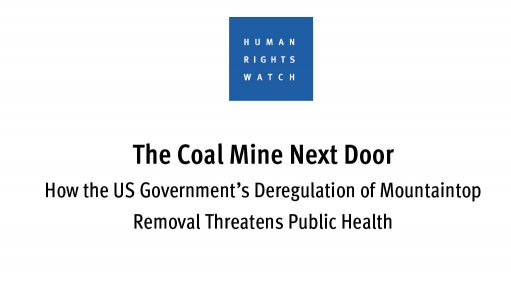
For 20 years, coal companies blasted off the mountaintops around the house of Rick Bradford, a retired teacher in Edwight, West Virginia, to excavate thin coal seams buried hundreds of feet deep. After detonating millions of pounds of explosives, trucks the size of his house dumped the loosened waste rock, called overburden, into the nearby valleys, burying the streams below. “It’s like a bomb hit,” Bradford said of the mountains he hiked since a child and where many of his loved ones are buried.
Mountaintop removal, a form of surface mining, has already leveled or severely impacted 500 mountaintops in West Virginia, Kentucky, Virginia, and Tennessee, according to Appalachian Voices, an activist group opposed to mountaintop removal. An Environmental Protection Agency assessment calculated that mountaintop removal has buried more miles of stream than the entire length of the Mississippi River.
Coal companies continue to operate these mines without stringent regulation, even as public health researchers have amassed significant evidence over the last decade showing that people like Bradford who live near mountaintop mines disproportionately suffer and even die from a litany of health problems, including cardiovascular disease and cancer. A study conducted by West Virginia University researchers revealed that tiny dust particles released to the air in Edwight promoted cancer growth when injected into human lung cells, while another by the United States Geological Survey, a science agency within the Interior Department, found that nearby streams have lost half their species of fish.
Citing “advances in science,” the US Department of the Interior, which oversees mining in the country, enacted the Stream Protection Rule in 2016 to mitigate some of mountaintop mining’s harmful effects. The rule required mining companies to monitor and restore streams polluted by their activities, but Congress got rid of it in one of its first acts under the Trump administration.
This was only the beginning of an avalanche of deregulation under President Donald Trump, who promised not to stop until the number of federal regulations is “less than where they were in 1960.” To do so could be devastating for public health and the environment since it would return the US to a time when there were virtually no federal laws prohibiting companies from dumping toxins into the air and water. Trump has blamed regulations for depressing wages and extolled a vision that prioritizes unfettered business activity. He has appointed industry lobbyists and insiders to top regulatory positions, many of whom opposed health and safety regulations.
Report by the Human Rights Watch